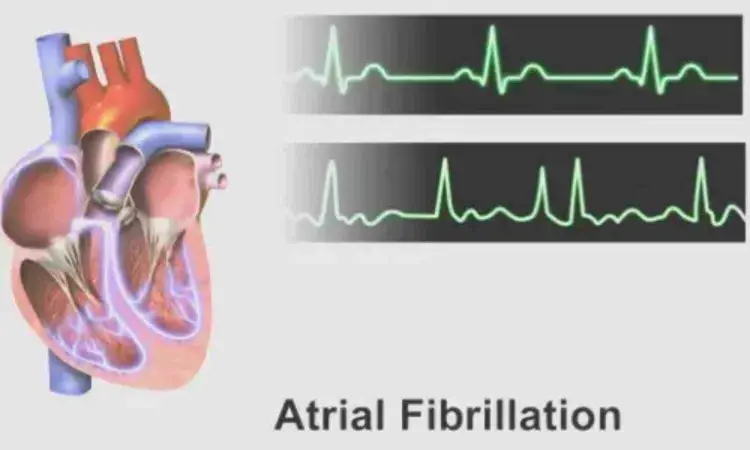- Home
- Medical news & Guidelines
- Anesthesiology
- Cardiology and CTVS
- Critical Care
- Dentistry
- Dermatology
- Diabetes and Endocrinology
- ENT
- Gastroenterology
- Medicine
- Nephrology
- Neurology
- Obstretics-Gynaecology
- Oncology
- Ophthalmology
- Orthopaedics
- Pediatrics-Neonatology
- Psychiatry
- Pulmonology
- Radiology
- Surgery
- Urology
- Laboratory Medicine
- Diet
- Nursing
- Paramedical
- Physiotherapy
- Health news
- Fact Check
- Bone Health Fact Check
- Brain Health Fact Check
- Cancer Related Fact Check
- Child Care Fact Check
- Dental and oral health fact check
- Diabetes and metabolic health fact check
- Diet and Nutrition Fact Check
- Eye and ENT Care Fact Check
- Fitness fact check
- Gut health fact check
- Heart health fact check
- Kidney health fact check
- Medical education fact check
- Men's health fact check
- Respiratory fact check
- Skin and hair care fact check
- Vaccine and Immunization fact check
- Women's health fact check
- AYUSH
- State News
- Andaman and Nicobar Islands
- Andhra Pradesh
- Arunachal Pradesh
- Assam
- Bihar
- Chandigarh
- Chattisgarh
- Dadra and Nagar Haveli
- Daman and Diu
- Delhi
- Goa
- Gujarat
- Haryana
- Himachal Pradesh
- Jammu & Kashmir
- Jharkhand
- Karnataka
- Kerala
- Ladakh
- Lakshadweep
- Madhya Pradesh
- Maharashtra
- Manipur
- Meghalaya
- Mizoram
- Nagaland
- Odisha
- Puducherry
- Punjab
- Rajasthan
- Sikkim
- Tamil Nadu
- Telangana
- Tripura
- Uttar Pradesh
- Uttrakhand
- West Bengal
- Medical Education
- Industry
Higher SII Levels Associated with Increased Atrial Fibrillation Recurrence Risk After Ablation: Study Shows

China: A recent study published in Heart Rhythm has highlighted the role of the systemic immune-inflammation index (SII) as a significant predictor of atrial fibrillation (AF) recurrence following catheter ablation in patients with hypertension. The findings indicate that the SII strongly predicted AF recurrence following catheter ablation in hypertensive patients.
"AF recurrence was observed in 17.94% of cases, with a significant increase in risk beyond a threshold of 457.41 ×10⁹/L. SII demonstrated superior predictive accuracy compared to C-reactive protein and high-sensitivity C-reactive protein (AUC: 0.688 vs. 0.510 and 0.542), reinforcing its potential role in risk stratification," the researchers reported.
Atrial fibrillation remains a common and challenging cardiac arrhythmia, particularly in hypertensive patients, who face a higher risk of recurrence even after catheter ablation. Inflammation is increasingly recognized as a key factor in AF pathophysiology. SII—a composite marker derived from platelet, neutrophil, and lymphocyte counts—has emerged as a promising indicator of systemic inflammation.
Against the above background, Qiming Liu, Department of Cardiology, The Second Xiangya Hospital, Central South University, Changsha City, Hunan Province, People’s Republic of China, and colleagues aimed to assess the predictive significance of the systemic immune-inflammation index for AF recurrence following catheter ablation in hypertensive patients.
For this purpose, the researchers conducted a retrospective cohort study involving 418 hypertensive patients with paroxysmal AF who underwent catheter ablation between January 2019 and January 2023. They used Cox proportional hazards models, restricted cubic spline analysis, and ROC curves to examine the link between SII and AF recurrence. The predictive accuracy of SII was compared with CRP and hsCRP, while sensitivity analyses were performed to ensure the reliability of the findings.
The study led to the following findings:
- There was AF recurrence in 17.94% of patients.
- SII was identified as an independent predictor of recurrence (HR: 1.13).
- RCS analysis showed a non-linear relationship, with a recurrence risk threshold at 457.41 ×10⁹/L.
- ROC analysis confirmed that SII had superior predictive accuracy compared to CRP and hsCRP (AUC: 0.688 vs. 0.510 and 0.542).
- Sensitivity analyses validated the reliability of SII across different patient subgroups.
"The study highlights SII as a strong independent predictor of AF recurrence after catheter ablation in hypertensive patients. The identified non-linear relationship, with a threshold of 457.41 ×10⁹/L, reinforces the role of inflammation in AF progression," the authors wrote. They further noted that "SII outperformed traditional inflammatory markers in predictive accuracy, and its reliability was confirmed across various subgroups."
Concluding their findings, they stated, "Incorporating SII into clinical practice could enhance risk assessment and guide personalized treatment strategies. Further research is needed to explore inflammation-targeted therapies to improve outcomes in this patient population."
Reference:
Zhang, Z., Li, S., Tu, T., Liu, C., Dai, Y., Wang, C., Lin, Q., Liu, C., Xiao, Y., & Liu, Q. (2025). Non-linear Relationship and Predictive Value of Systemic Immune-Inflammation Index for Atrial Fibrillation Recurrence After Catheter Ablation in Hypertensive Patients. Heart Rhythm. https://doi.org/10.1016/j.hrthm.2025.03.1958
Dr Prem Aggarwal, (MD Medicine, DNB Medicine, DNB Cardiology) is a Cardiologist by profession and also the Co-founder and Chairman of Medical Dialogues. He focuses on news and perspectives about cardiology, and medicine related developments at Medical Dialogues. He can be reached out at drprem@medicaldialogues.in


